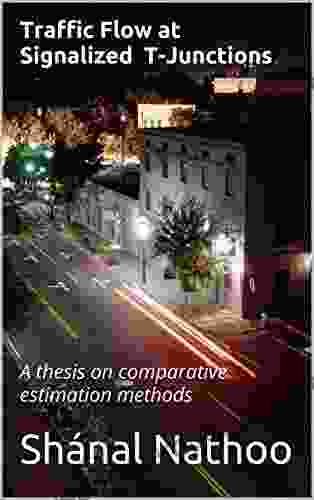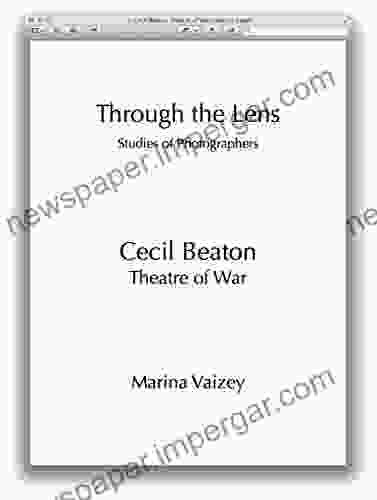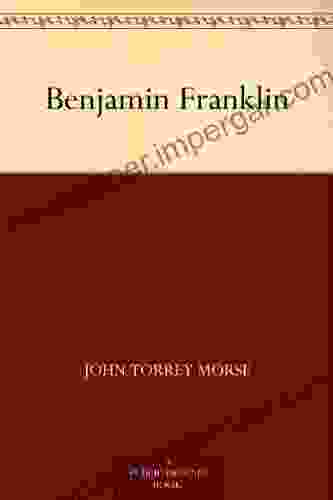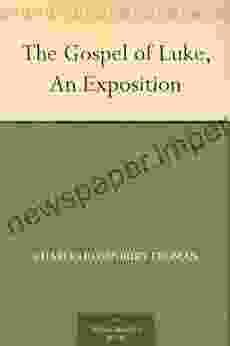Thesis On Comparative Estimation Methods: A Comprehensive Guide to Accurate Measurement

5 out of 5
| Language | : | English |
| File size | : | 7420 KB |
| Text-to-Speech | : | Enabled |
| Enhanced typesetting | : | Enabled |
| Word Wise | : | Enabled |
| Print length | : | 80 pages |
Measurement, the cornerstone of science and engineering, empowers us to quantify and comprehend the world around us. However, achieving accurate and reliable measurements poses a significant challenge. Comparative estimation methods offer a powerful solution, providing a framework for evaluating and selecting the most appropriate techniques for a given measurement scenario.
Our thesis on comparative estimation methods presents a comprehensive exploration of this field, guiding readers through the intricacies of various techniques and their applications. We delve into the theoretical foundations of estimation theory, examining the concepts of accuracy, precision, and statistical analysis. By understanding the strengths and limitations of each method, researchers and practitioners can make informed decisions, ensuring the highest quality of measurement outcomes.
Chapter 1: Foundations of Comparative Estimation Methods
- Concept of Measurement: Defining measurement, its importance, and the challenges associated with achieving accurate results.
- Estimation Theory: Introducing the fundamental principles of estimation theory, including point estimates, interval estimates, and the role of probability distributions.
- Accuracy and Precision: Distinguishing between accuracy and precision, emphasizing their significance in measurement and the factors that influence them.
- Statistical Analysis: Exploring the role of statistical analysis in comparative estimation methods, covering hypothesis testing, confidence intervals, and regression techniques.
Chapter 2: Overview of Comparative Estimation Methods
- Classical Estimation Methods: Discussing traditional methods such as least squares, maximum likelihood, and Bayesian estimation.
- Non-Parametric Estimation Methods: Introducing non-parametric techniques, including kernel density estimation and bootstrapping.
- Model-Based Estimation Methods: Exploring the use of statistical models in estimation, such as linear regression and generalized linear models.
- Machine Learning Techniques for Estimation: Examining the application of machine learning algorithms, such as support vector machines and neural networks, to estimation tasks.
Chapter 3: Comparative Analysis of Estimation Methods
- Criteria for Comparison: Establishing the criteria used to evaluate and compare different estimation methods, including accuracy, precision, robustness, and computational efficiency.
- Simulation Studies: Describing the use of simulation studies to compare the performance of estimation methods under controlled conditions.
- Case Studies: Presenting real-world case studies where comparative estimation methods were successfully applied, demonstrating their practical significance.
- Model Selection and Validation: Guiding readers through the process of selecting the most appropriate estimation method for a given scenario and validating the chosen model.
Chapter 4: Advanced Topics in Comparative Estimation Methods
- Composite Estimation Methods: Combining multiple estimation methods to improve accuracy or efficiency.
- Meta-Estimation Methods: Estimating the performance of an estimation method itself, enabling self-assessment and improvement.
- Robust Estimation Methods: Developing estimation techniques that are insensitive to outliers or noisy data, ensuring reliable results even in challenging conditions.
- Bayesian Comparative Estimation: Integrating Bayesian principles into comparative estimation methods, providing a powerful framework for incorporating prior knowledge and uncertainty.
Chapter 5: Applications of Comparative Estimation Methods
- Measurement in Physical Sciences: Utilizing comparative estimation methods to enhance precision in scientific experiments and technological applications.
- Estimation in Social Sciences: Applying estimation techniques to analyze survey data, estimate population parameters, and draw meaningful s from social science research.
- Medical Diagnosis and Prognosis: Leveraging comparative estimation methods to improve diagnostic accuracy, predict disease progression, and personalize treatment plans in healthcare.
- Financial Modeling and Risk Assessment: Employing estimation techniques to forecast financial trends, evaluate investment strategies, and assess risk exposure.
Our thesis on comparative estimation methods provides a comprehensive and up-to-date treatment of this vital field. By mastering the concepts and techniques presented within these pages, researchers, scientists, and practitioners will gain the knowledge and skills to make informed decisions about measurement and estimation strategies.
Comparative estimation methods empower us to unlock the true potential of measurement, enabling us to quantify and understand the world with unprecedented accuracy and precision. As we continue to push the boundaries of scientific and technological advancements, comparative estimation methods will remain an indispensable tool, shaping the future of measurement and revolutionizing the way we perceive and interact with our surroundings.
Call to Action
Embark on your journey to measurement mastery today. Free Download your copy of "Thesis On Comparative Estimation Methods" now and unlock the transformative power of precise and reliable measurements.
**SEO Title:** Thesis On Comparative Estimation Methods: A Comprehensive Guide to Accurate Measurement
**Alt Attribute for Image:** Comparative Estimation Methods: Exploring the Art of Precise Measurement
5 out of 5
| Language | : | English |
| File size | : | 7420 KB |
| Text-to-Speech | : | Enabled |
| Enhanced typesetting | : | Enabled |
| Word Wise | : | Enabled |
| Print length | : | 80 pages |
Do you want to contribute by writing guest posts on this blog?
Please contact us and send us a resume of previous articles that you have written.
 Book
Book Novel
Novel Page
Page Chapter
Chapter Text
Text Story
Story Genre
Genre Reader
Reader Library
Library Paperback
Paperback E-book
E-book Magazine
Magazine Newspaper
Newspaper Paragraph
Paragraph Sentence
Sentence Bookmark
Bookmark Shelf
Shelf Glossary
Glossary Bibliography
Bibliography Foreword
Foreword Preface
Preface Synopsis
Synopsis Annotation
Annotation Footnote
Footnote Manuscript
Manuscript Scroll
Scroll Codex
Codex Tome
Tome Bestseller
Bestseller Classics
Classics Library card
Library card Narrative
Narrative Biography
Biography Autobiography
Autobiography Memoir
Memoir Reference
Reference Encyclopedia
Encyclopedia Joni Eareckson Tada
Joni Eareckson Tada John Masefield
John Masefield John Winton
John Winton John Patrick Daly
John Patrick Daly Johnny Walker
Johnny Walker John Connell
John Connell John Wooley
John Wooley Jonathan Shapiro
Jonathan Shapiro John Tsilimparis
John Tsilimparis John Ivelaw Chapman
John Ivelaw Chapman John Medina
John Medina Joseph Dimona
Joseph Dimona John J Mcdermott
John J Mcdermott John M Curatola
John M Curatola John S Chen
John S Chen Joseph Story
Joseph Story Jonathan Balcombe
Jonathan Balcombe Joseph David Job
Joseph David Job John Lewis Gaddis
John Lewis Gaddis John R Krebs
John R Krebs
Light bulbAdvertise smarter! Our strategic ad space ensures maximum exposure. Reserve your spot today!
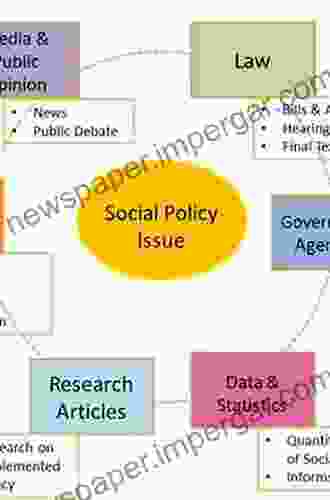
 Mario Vargas LlosaUnveiling the Intricacies of Social Issues: A Comprehensive Guide to Policy...
Mario Vargas LlosaUnveiling the Intricacies of Social Issues: A Comprehensive Guide to Policy... Trevor BellFollow ·18.3k
Trevor BellFollow ·18.3k Doug PriceFollow ·5.8k
Doug PriceFollow ·5.8k Kendall WardFollow ·18.8k
Kendall WardFollow ·18.8k Joseph FosterFollow ·9.5k
Joseph FosterFollow ·9.5k Alexander BlairFollow ·16.4k
Alexander BlairFollow ·16.4k J.D. SalingerFollow ·9.4k
J.D. SalingerFollow ·9.4k Donald WardFollow ·16.2k
Donald WardFollow ·16.2k Leon FosterFollow ·9k
Leon FosterFollow ·9k
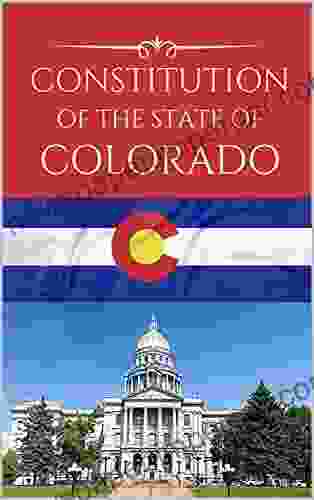
 Jake Powell
Jake PowellThe Constitution of the State of Colorado: A Legacy of...
Since its adoption in 1876, the...
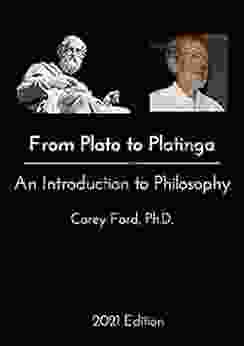
 Devin Ross
Devin RossFrom Plato to Plantinga: A Journey Through the History of...
Philosophy is the study of...
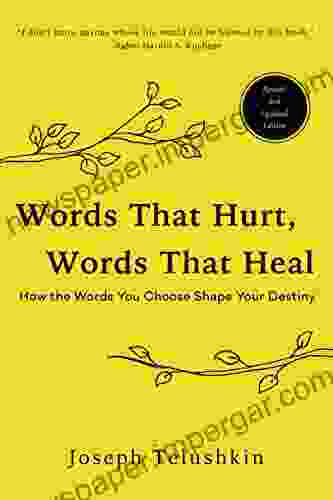
 Robin Powell
Robin PowellWords That Hurt, Words That Heal: The Power of Language...
Words are powerful. They can...

 T.S. Eliot
T.S. EliotTantalize Your Taste Buds with Over 90 Low-Carb Ethnic...
Indulge in a Culinary Adventure with "Over...
5 out of 5
| Language | : | English |
| File size | : | 7420 KB |
| Text-to-Speech | : | Enabled |
| Enhanced typesetting | : | Enabled |
| Word Wise | : | Enabled |
| Print length | : | 80 pages |


